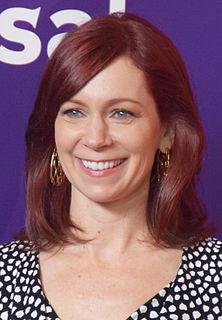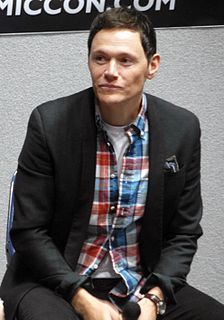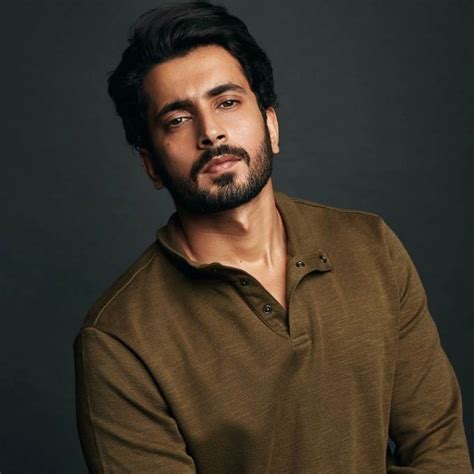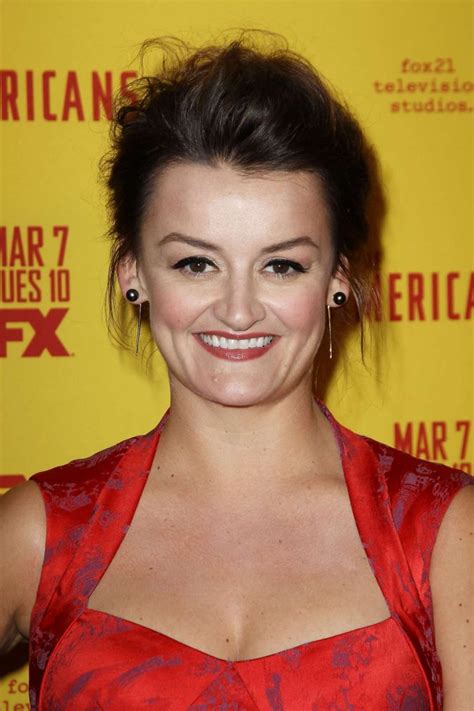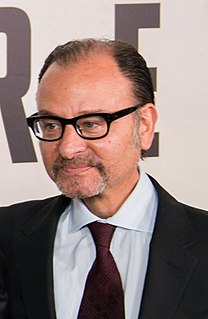A Quote by Shia LaBeouf
Sometimes perception is almost more important than the skill level of an actor. And if you give too much away, you have nothing to take for yourself and put onscreen. If people feel like they know you too well, they won't be able to indentify with the character you're trying to portray. Or they'll feel that you're just playing yourself, and then you just become a personality actor. And that's the death of any actor.
Related Quotes
Sometimes I say I feel more like a dancer than an actor, because there are things implied about being an actor that I don't really like. I feel more comfortable with the word 'performer'. I like being the thing. I like being the doer. There's a factualness to it. And then certain resonances happen out of how you apply yourself physically.
A lot of times, in film and TV, they just want you to play yourself. But, when you're someone who's more of a character actor, you get to experience what it feels like to play a bunch of different kinds of people. I find it more invigorating than challenging. I definitely trust the writers to give me the material that I will take and turn into the person that I'm playing.
I actually cut my sentences a lot. I'm very aware of the actor, giving them too many words - just a mouthful of words - it's difficult sometimes for an actor. So I'm kind of aware of breaking sometimes the line, the sentence with a comma where maybe there wouldn't be a comma there. Just to give a breathing space for the actor, just to be aware of that.
When someone who is known as a comedic actor goes to drama, it often doesn't work out, because they really just chose wrong, I think - or maybe they're just not good actors. For me it's important making that transition seamless, and not a huge shock and jumping into cold water. It doesn't feel like I'm trying to shock you or anything. I'm just saying, "I'm a different actor than you thought I was. Don't put me in a box. I'm not just some kid running around screaming curse words." I have other tastes besides comedy. I love comedy, but I love dramatic movies just as much.
Once I hit 25, I realized I had to do more than just be an actor. I love acting, but there's something that makes it difficult to just be a man, a grownup. Not to take away from any actors, but I knew I wasn't going to be Tom Cruise. I knew I was a character actor, which is great and I'm proud of it. But I knew that I wanted to do more. I started producing and directing and writing and stuff for the theater, and then that grew out of hand and I sort of lost my control. I've always loved the process of filmmaking. Now I'm much more into producing docs, but I want to direct features.
To be an actor and a director, I actually felt it helped me tremendously to be in the scenes of The Hollars, because as you can see, they're very intimate, very intense scenes. You don't want to break the actor's character and you don't want to break their momentum, so as the actor, I tried not to call cut as much as I could, and almost make it feel like a play, just set this environment where these amazing actors could do what they wanted to do.
Sometimes a scene works and acting is the easiest thing in the world and you don't have to do much of anything - just enjoy yourself and listen to the other actor. When it doesn't work, then every actor has different ways of dealing with the impasse. Sometimes you use memories from the past. Whatever. It depends from job to job.





